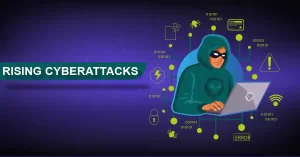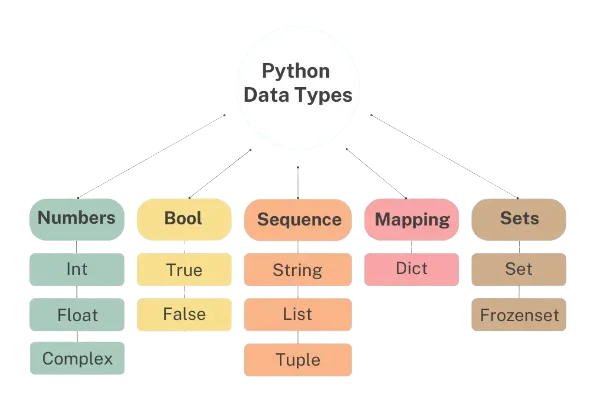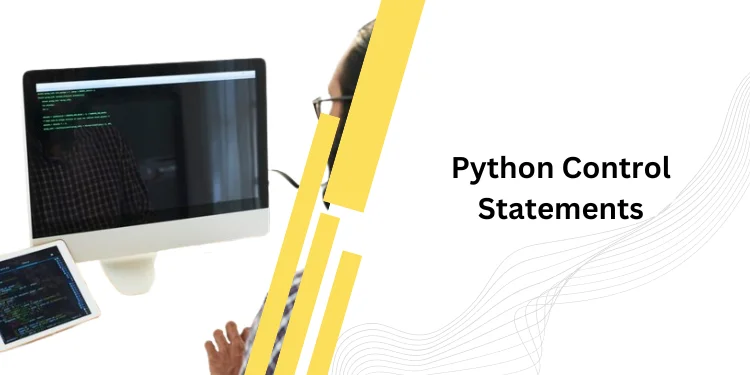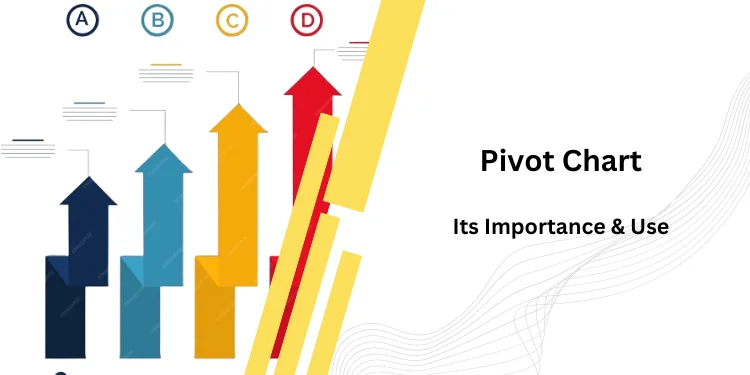INTRODUCTION to Future of Cybersecurity
Interested in developing your career and Future of Cybersecurity but worried about its scope and growth in the upcoming future? Well here are the important aspects covered in this blog which you must be aware of before selecting this career as a full-time. Cybersecurity is the most demanding career option. According to Business Insider India, India will have 3.5 million unfilled cybersecurity jobs by 2025.
The average income of Cyber Security Developers in India is around INR 6-9 LPA in India.
Many individuals are curious about the future of cybersecurity. Cybersecurity is still a reasonably young aspect of IT, and it has evolved significantly in recent years as a distinct profession within IT security. In this blog, we’ll look at current developments in information security, particularly cybersecurity, and try to estimate what is the future of cybersecurity. It’s interesting looking at what the trends were in 2021 and what they’re expected to be in 2022 to figure out what the future of cybersecurity holds.
The world of technology moves at a fast pace, and not every innovation survives. It’s simply a matter of remembering what happened to videotapes to understand this. The future of cybersecurity, in my opinion, has a bright future. Data is generated and exchanged at a tremendous rate in today’s society, as you are aware. This generated data is used by all companies around the world to make important decisions. The rise of data has coincided with a sharp increase in the number of cyberattacks around the world. Cybersecurity is used to protect against such cyberattacks. Cybersecurity can be defined as the process of preventing unwanted digital access to networks, software, computer systems, and their components.
The number of cybersecurity jobs has increased significantly. This will only grow in the coming years, as there will always be a demand for professionals who can secure the confidentiality of the data produced. As a result, the future of cybersecurity is promising.
What is Cybersecurity?

Cyber security refers to the safeguarding of Internet-connected systems, including hardware, software, and data, against cyber attacks. It is essentially about people, processes, and technology collaborating to cover the whole range of threat reduction, vulnerability reduction, international engagement, and recovery policies and actions, such as computer network operations, information assurance, and law enforcement. It is a collection of technologies, methods, and practices aimed at preventing attacks, theft, damage, modification, or unauthorized access to networks, devices, programs, and data.
As a result, it’s also known as information technology security this will play an important role in the future of cybersecurity.
Cyber attacks are becoming a global concern. It has sparked a slew of fears that could threaten the world economy. Companies and organizations, particularly those dealing with information connected to national security, health, or financial records, must take efforts to protect their sensitive business and personal information like the number of cyberattacks raised. Multiple layers of protection are used in an effective cybersecurity strategy to secure computers, networks, applications, and data. To establish a successful defense against cyber threats, an organization’s people, processes, and technology must all support each other.
Rising Cyberattacks in the Future of Cybersecurity

When an individual or an organization intentionally and maliciously attempts to enter the information system of another individual or organization, this is known as a cyber attack. While most attacks have an economic goal, several recent operations have included data destruction as a goal. Malicious actors frequently seek ransom or other forms of financial gain, however, attacks can be carried out for a variety of reasons, including political action.
The globe is dealing with what is called to be a 5th generation cyberattack – a multi-vector complex attack with clear cyber pandemic features. SolarWinds Sunburst Attack is the most recent attack and there will be numerous attacks in the future of cybersecurity. Researchers have called this attack Sunburst, and we believe it is one of the most complex and severe attacks ever witnessed. The attack is said to have affected major US government offices as well as several private enterprises. Cyber attacks will be the main issue to resolve in the future of cybersecurity.
-
Clouds are under Attack in the Future of Cybersecurity-
The increasing popularity of public cloud domains has resulted in a rise in cyber attacks focusing on the platform’s resources and crucial data. As in 2018, misconfiguration and poor management of cloud resources remained the most dangerous to the cloud ecosystem in 2019. As a result, cloud assets that have been exposed have been subjected to a wide range of attacks. Misconfiguring cloud infrastructures was one of the key reasons for a large number of data theft events and attacks that enterprises around the world suffered this year.
Upgraded strategies capable of avoiding basic cloud security technologies have boosted the number of clouds crypto mining efforts. Docker hosts have been exposed, and competitors’ cloud-based crypto mining activities have been put down. The number of exploitations against public cloud infrastructures has also increase
d, according to Check Point researchers.
-
Trending Phishing cyber attacks in the Future of Cybersecurity-
Phishing is a common cyber-attack method that remains one of the most serious risks in the future of cybersecurity. Email security mechanisms are increasingly being bypassed by advanced socially engineered evasion tactics. Sextortion schemes and business email compromise (BEC), according to CheckPoint analysts, are on the rise, threatening victims with blackmail or impersonating others to extract payment. Both frauds do not always include harmful attachments or links, making them more difficult to spot. One sextortion effort went so far as to pose as the CIA and warn victims that they were suspected of spreading and keeping child pornography in April. A Group of hackers demanded $10,000 in Bitcoin.
-
Increasing Attacks Mobile device attacks in the Future of Cybersecurity-
Malicious actors are adopting general threat landscape models and techniques to the mobile world. In comparison to 2018, banking malware has successfully invaded the mobile cyber arena, with a dramatic increase of more than 50%. Malware capable of stealing payment data, credentials, and funds from victims’ bank accounts has been pushed out of the broad threat landscape and has become a particularly widespread mobile threat as a result of the increased use of banks’ mobile applications.
-
Rising Ransomware Attacks in the Future of Cybersecurity-
Ransomware has been popular in recent years. Small local and state government agencies have been targeted, primarily in the Southeast of the United States. Cloud computing, cloud-based subscription services, and the rapid spread of mobile devices are weakening traditional network perimeters. As the number of vectors increases, so does the number of ways to attack a company.
According to data collected over the past 3 months, there has been a 39 % increase in ransomware attacks. India is ranked second among the most affected countries, according to this data. When the world was recovering from the COVID-19 attack, attackers took advantage of the situation to launch a destructive attack. There is an assumption of attacks on the healthcare domain in India in the future of cybersecurity.
Future of Cybersecurity & Career

Experts believe that the future of Cybersecurity will grow to a $170 billion sector by 2025. For the past five years, Cybersecurity specialists have earned more money than the average IT professional. And, the average income disparity across the difference is 9%. While the number of jobs available is increasing and salaries are improving, the skill gap is taking longer to close. According to the Center for Cyber Safety and Education, the sector will suffer a shortage of 1.8 million Cybersecurity expertise by 2025 if cybersecurity job seekers do not begin upskilling.
Because there are so many sub-disciplines, pinpointing the particular technical abilities required to earn good pay is challenging. Chief Information Security Officer, Deputy CISO, Freelance Bug Bounty Hunters, Lead Software Security Engineer, and Cybersecurity Sales Engineer were included among the high-paying positions. There are a lot of incredible cybersecurity jobs in the market every day.
With the rise in cybercrime daily, this profession is in high demand. This is a difficult but extremely rewarding job. Because the difficulties of cybersecurity are expanding and evolving daily, qualified cybersecurity professionals are in high demand around the world. As cyber criminals’ increasingly advanced strategies continue to damage firms, cybersecurity is becoming a rising concern for businesses of all kinds. According to Gartner, firms will spend more than $123 billion on security in 2025, with that figure expected to rise to $170.4 billion by 2022. To know more click here.
For outstanding talent in this industry, companies are willing to pay anything between 1.5 and 4 crores. Because every company needs cybersecurity professionals to protect their data, there are countless employment openings in practically every industry. Cybersecurity specialists are in charge of maintaining the safety and security of their organization’s data. In recent years, the Indian IT industry has made a significant contribution to the country’s economic well-being.
Skills Required

The first and most important requirement is a strong interest in the area. Candidates for cybersecurity positions should have a strong sense of curiosity and a strong appetite for education. The cyber threat landscape is constantly changing, so if you’re new to this sector, you’ll need to be ready to keep learning and putting in the effort. The following are the hard and soft cybersecurity skills tha
t beginners need to get started in a successful cybersecurity career:
Networking
Networking is the next cybersecurity skill on our list. Regular transactions and communication on computer networks demand security. In their day-to-day operations, businesses use a variety of networks. It is extremely important to learn the complexities of how to set up to manage local area networks (LAN), wide area networks (WAN), and virtual private networks (VPN).
Coding
Coding is a computer programming language that is used to create software. Understanding the fundamental concepts of coding in languages like HTML and Javascript can give you a better understanding of how they are vulnerable to cyber-attacks.
Systems And Applications
Knowledge of software and systems is another important cybersecurity skill. Because computer software and other applications are important company tools, it’s a good idea to understand everything you can about them. You will be better prepared to improve the security of applications by detecting vulnerabilities if you learn how to run, set up an organization, and maintain databases and web servers.
IT knowledge in a range of fields
It is necessary to learn about IT to gain an understanding of the systems and processes that comprise the technology’s foundation. A smart cybersecurity practitioner is analytic when it comes to figuring out how accidents happen and how to prevent them.
Systems
A good understanding of systems is another important cybersecurity skill. Study the distinct characteristics of common operating systems and become familiar with command-line interfaces such as Linux’s Terminal or Windows Power shell to learn everything you can about desktop and mobile systems.
Technological Innovation
We don’t like cyber attackers, but there is one thing we must give them: a true innovator spirit. We must keep up with new technology and its development to be ready to defend ourselves. Cybersecurity innovations are building new foundations for defending against malicious attacks on commercial networks. During the Covid crisis, the adoption of new working environments highlighted the importance of cybersecurity even more than earlier. The current scenario has been worsened by the speed of digital transformation and the development of innovative technologies, which have sustainably and securely resulted in a record number of cyberattacks. Every vulnerability is exploited by attackers.
Cybersecurity innovations sparked key achievements in this domain. Since we’re going toward a digitally empowered future, it’s important for cybersecurity experts to be imaginative and put new ideas into effect. We can speed our innovation journey organization’s sustainability and securely if we work on becoming familiar with disruptive technologies that provide greater network security.
Jobs and Opportunities in the Future of Cybersecurity

Job opportunities in the future of cybersecurity are fascinating. Anyone who appreciates a challenge and the thrill of solving difficulties will thrive in this fast-paced career.
When you think about it, the above-average growth in cybersecurity employment makes perfect sense. As technology grows more and more embedded into everyone’s daily lives, the demand for professional cybersecurity specialists will increase. Cyber Security salaries are also high and increasing day by day. While the future of cybersecurity employment estimates shows more openings, the reality is that there aren’t enough competent specialists to go around right now.
Because the future of cybersecurity job market has risen so quickly in recent years, candidates usually have a lot of choices. Because of the scarcity of qualified personnel, those who choose a career in cybersecurity may expect a plethora of chances, good income, and excellent perks because the future of cybersecurity is bright.
Demand for Information Security Analysts is predicted to grow by 37 % by 2025, acc to the Bureau of Labor Statistics (BLS).
There are about 2.93 million cybersecurity job opportunities worldwide, according to ISC2.org. While certain positions in the field of cybersecurity will require a graduate degree in computer science or information security, entry-level positions are possible. Entry-level security experts can anticipate dealing with lower-level security issues including log monitoring, backups, and update management.
Because there is such high demand in the future of cybersecurity professionals, many professors who teach cybersecurity associate’s degree courses indicate that many of their students already have positions lined up when they graduate.
Conclusion
At the end of the day, no one can deny that cyber attacks have become more powerful than ever before. Cybersecurity experts, on the other hand, have yet to improve their skills. While the opportunity exists, now is the perfect time to study or update your Cybersecurity abilities so that you are prepared to ride the 21st Century Cyber Security job boom. The future of cybersecurity will boom. According to a survey published by a top cybersecurity company, 50% of a company’s network’s
endpoints are insecure. And practically all endpoint security tools failed, resulting in a negative return on security investment for the company.
Ultimately, no one can deny that cybersecurity is one of the most in-demand job profiles in the current and also in the future of cybersecurity. While the chances are there in front of you, now is the ideal time to brush up on your cybersecurity skills so that you are prepared to ride the wave of 21st Century cybersecurity jobs.














One response to “Future of Cybersecurity | 21st Century | DataTrained”
[…] Airlines in addition to travel industries confront e-commerce fraud probably the most. They shed billions of bucks each year being forced to refund money that is stolen from customers. Transaction fraud is probably the most widely used kind of scam. This specific sector involves using a stolen credit card for booking accommodation or flights. User behavior assessment user profiling, machine learning solutions, and data science in travel industry can assist avoid and identifying fraudulent transactions from transpiring. AI remedies for fraud detection are suitable for web-based platforms and also smartphone booking apps likewise look for personalized machine learning models to forecast and identify fraud that authorized them to minimize chargebacks to fifty percent. Learn more about cyber security here. […]